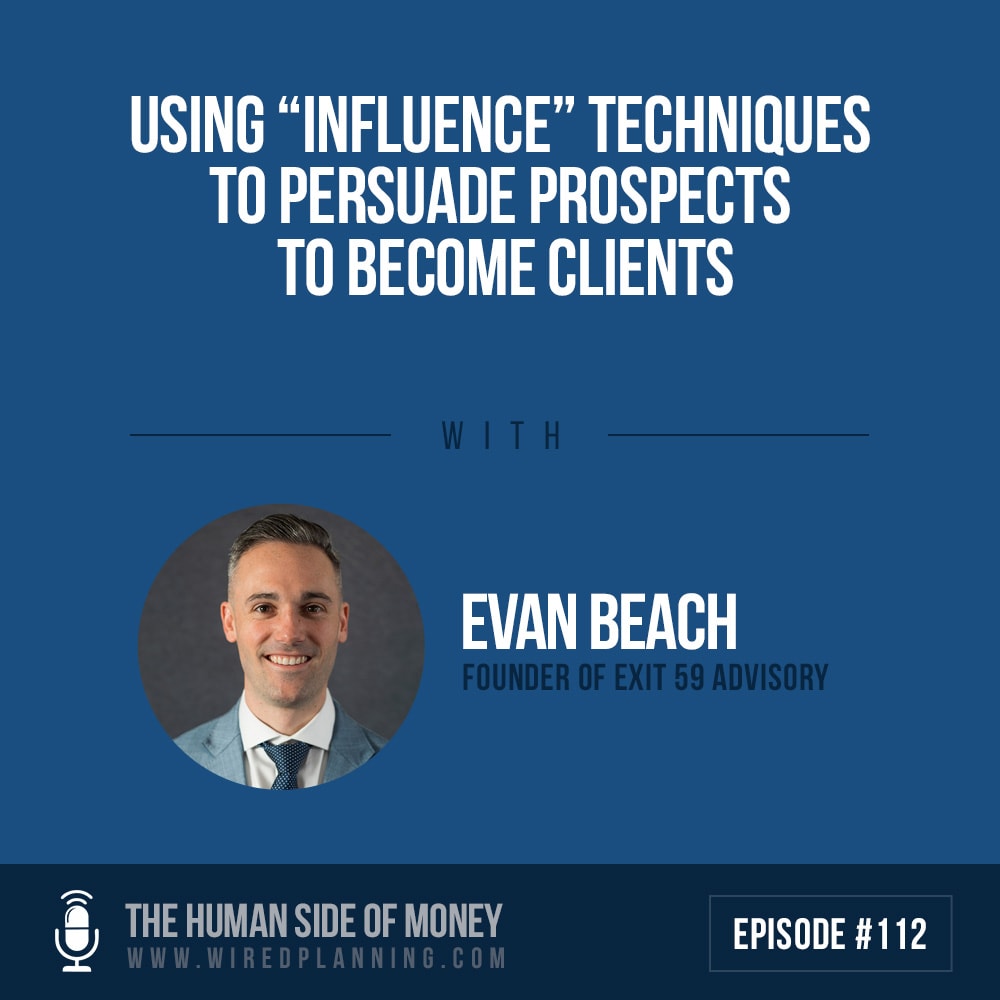Show Links
*If you want to be notified when the next episode packed full of practical tips and strategies to master the human side of advice will be released, you can:
- Subscribe to the Show
- Join the community of like-minded advisors and planners across the world being notified via email. You’ll also receive our monthly “Wisdom Round Up” newsletter. It’s the best content from around the industry on specific ways to apply the human side of advice in your practice, process, and conversations.
*The featured partner for this episode is a must-have tool for helping clients follow-through and implement advice. After all, the best advice is useless in the absence of execution. Rather than stressing about follow-up calls and emails, Knudge provides a built-in system designed to improve follow-through.
Here’s the best part…you can try it for free with 12 clients.
Episode Summary
Three important questions every advisor should answer:
- Do you think you provide a good, valuable, and life-changing service?
- Do you think your clients are better off with you than without you, even after they pay?
- Do you find that even though they’re better off with you, they still need a little nudge to make the decision to work with you?
If you answered yes to any (or all) of these questions, then here’s the harsh truth you need to hear (and probably already know):
Getting prospects to become clients requires more than expertise. It requires persuasion.
And if you can learn to persuade more effectively, then more people can actually benefit from what you have to offer.
Your life-changing impact will be greater and more widespread.
Yet, while most advisors have been taught the expertise side of the equation, they have never learned effective persuasion techniques.
In the popular book Influence: The Psychology of Persuasion, Robert Cialdini presents research on six psychological principles used to persuade prospects to become buyers.
Fortunately, Evan Beach took the research from the book and created a version specifically for financial advisors.
In this episode, he’ll reveal how financial advisors can use influence techniques to persuade more prospects to become clients.
Things You’ll Learn
- The sales mindset every advisor should have
- How and why to implement a waitlist for prospective clients
- An example of a firm that uses “scarcity” to convert prospects
- How his doctor and realtor taught him the importance of sales
- How he makes his marketing better than most advisor’s offering
- Why he gives away as much value as he can from the very beginning
- How to introduce the freemium model into your prospecting process
- A psychologically-backed idea for integrating prospects into client events
- The change he made to his post-meeting email that increased engagement
- Why he doesn’t charge for financial plans based on the “reciprocity” principle
- Why most advisors are often too scared to embrace effective selling techniques
About Evan Beach, CFP®, EA, AWMA®
Evan Beach is the founder of Exit 59 Advisory, a member of the Financial Behavior Keynote Group, and an instructor at Texas Tech’s undergraduate and graduate financial planning programs.
He’s also a regular contributor for Kiplinger and the Journal of Financial Planning and his work has also been featured in Yahoo Finance, CNBC, and Bloomberg News among others.
Other Episodes You’ll Like On The Psychology of Prospecting:
- A Collection of Wisdom To Conduct The Ultimate Intro Meeting
- A Comfortable Approach For Turning Prospects Into Clients Without Being Salesy with Nancy Bleeke
- Evidence-Based Methods To Seamlessly Convert Prospects Into Clients with Dan Solin
Resources
“Influence Techniques To Persuade Prospects To Become Clients” by Evan Beach (Nerd’s Eye View)
Financial Behavior Keynote Group
An Evidence-Based Approach To Winning Prospects and Influencing Clients with Evan Beach
Influence: The Psychology of Persuasion by Robert Cialdini
Whenever you’re ready, there are 2 ways I can help you take your relationships and your practice to the next level:
- The Ultimate Intro Meeting: Learn how to qualify and convert prospects in 30 minutes without being salesy
- HSOA “Core”: Exclusive content, courses and conversations to master the human side of advice with like-minded advisors
If you want more information on either of these, let me know here.





